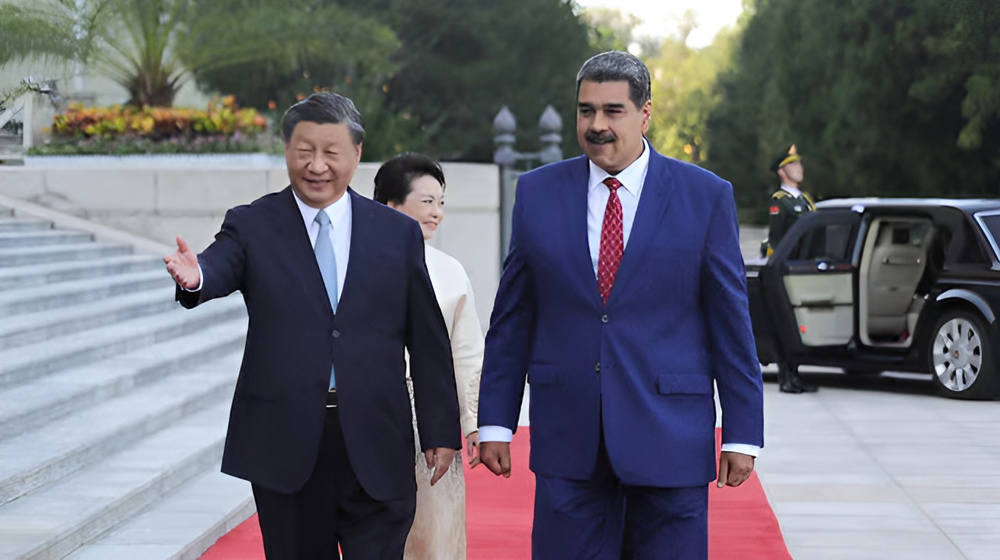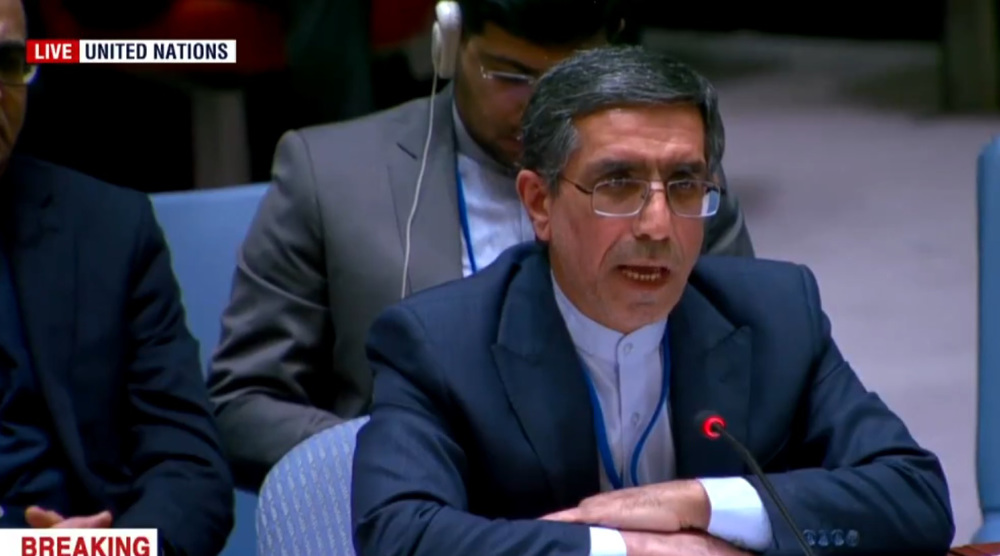Beijing warns US, outsiders not to amplify old disputes in South China Sea
Beijing has warned the United States and other non-Asian countries not to amplify disputes in the South China Sea.
After meeting counterparts in the Thai capital Bangkok, Chinese Foreign Minister and State Councilor Wang Yi announced on Wednesday that China and the member countries of the Association of Southeast Asian Nations (ASEAN) have made progress on an eventual Code of Conduct in the South China Sea.
"This cherishable achievement … demonstrates the conviction of regional countries to jointly set rules in the region and safeguard peace and stability in the South China Sea together," he added.
China’s top diplomat, who is scheduled to meet US Secretary of State Mike Pompeo in Bangkok, also reiterated that his country opposes interference by countries outside the region.
Answering a question on the involvement of the US and other non-Asian countries in the discussions, Wang said, "We think non-regional countries should not deliberately amplify such differences or disputes left from the past."
"Non-regional countries should also not make use of these differences to sow distrust between China and ASEAN countries," he added.
Beijing has recently condemned as "slanderous" the US criticism of its role in the South China Sea, including remarks made by Pompeo.
The US State Department has expressed concern about reports of alleged Chinese obstruction of oil and gas activities in the South China Sea, pointing to remarks by Pompeo who earlier in the year accused China of “blocking development in the South China Sea through coercive means,” and alleged that Beijing “prevents ASEAN members from accessing more than $2.5 trillion in recoverable energy reserves.”
China claims nearly the entire strategic South China Sea with Brunei, Indonesia, Malaysia, the Philippines, Taiwan and Vietnam pushing competing claims to parts of the maritime region.
Wang also said that Beijing is in discussions to expand and "institutionalize" joint military drills with ASEAN members in the region following two previous exercises.
The resource-rich South China Sea has long been a source of tension between Beijing and Washington, which regularly dispatches its warships and warplanes to the waters as part of what it describes as “freedom of navigation” patrols.
The US has been taking sides with several of China’s neighboring countries competing sovereignty claims to the strategic waters.
VIDEO | Press TV's news headlines
More Europeans see Trump as 'enemy' than 'friend': Survey
Ukraine war talks begin in UAE as Russia repeats Donbas demand
Iran slams UNHRC session as illegitimate, says no submission to foreign pressure
Six-month-old boy freezes to death in Gaza amid Israel's inhumane blockade
VIDEO | Protestors in South Africa slam US interference in other countries’ affairs
Israel runs smear campaign against Doctors Without Borders: Report
Iran slams EU parliament’s ‘meddlesome, irresponsible’ resolution on terrorist riots

















 This makes it easy to access the Press TV website
This makes it easy to access the Press TV website